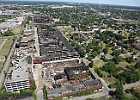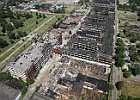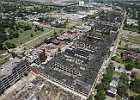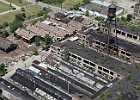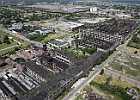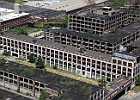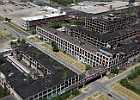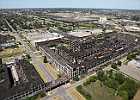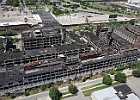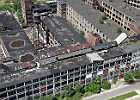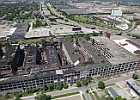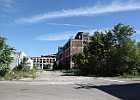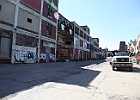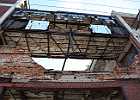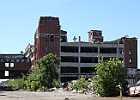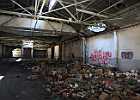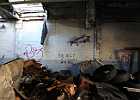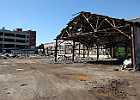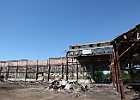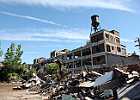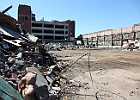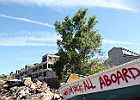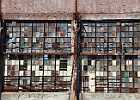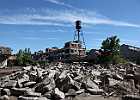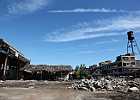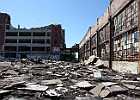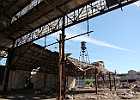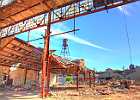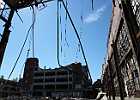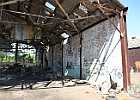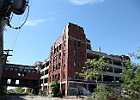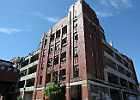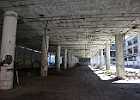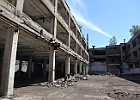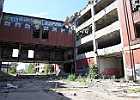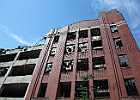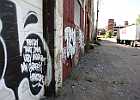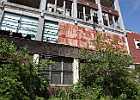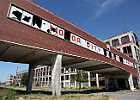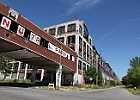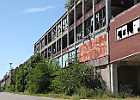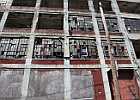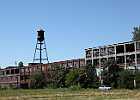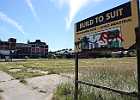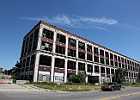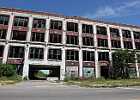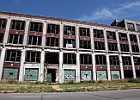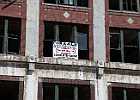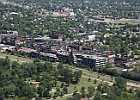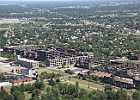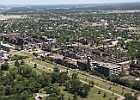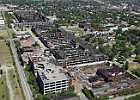Packard Plant
Packard Plant, Detroit, Michigan, July 2010. In the 1940s, the “heartbeat of the industrial metropolis” was this part of Detroit, which had “one of the most remarkable concentrations of industry in the United States.” Near this area was a Dodge factory employing more than 35 thousand workers, and another plant where Studebaker produce its distinctive luxury cars. And here, “Packard Motors produced cars in a sprawling ninety-five-building complex that extended for nearly a mile ... At shift change time ... cars, buses, and pedestrians clogged the streets.” Thomas J. Sugrue (2005). The Origins of the Urban Crisis: Race and Inequality in Postwar Detroit. Princeton: Princeton University Press, p. 125. Now the place is eerie and quiet. Packard went bankrupt in the 1950s, in part because the company was too slow to transition away from the war-time military equipment contracts that had been so important to all large manufacturers during the Second World War and the Korean War. All that wartime production had made Detroit famous as “the arsenal of democracy,” but the end of the wars required companies to transition quickly, and Packard wasn’t quite quick enough. “The irony,” then, was that the company “disappeared in the greatest car-buying spree America had ever seen.” James A. Ward (1995). The Fall of the Packard Motor Company. Stanford: Stanford University Press, p. 2. Packard, however, was not unique. Even in the best years of American industrial growth, between 1947 and 1963, Detroit lost 134 thousand manufacturing jobs (Sugrue, Origins, p. 126), and the losses only got worse in later years. Detroit has lost half its population since the 1950s. Once a symbol of the industrial city, Detroit is now often approached as a postindustrial landscape -- a site of history that resembles, in a strange way, the ruins of ancient Greek cities. The photographer Camilo Jose Vergara wonders if this might not be the “American Acropolis.” See Camilo Jose Vergara (1995). The New American Ghetto. New Brunswick, NJ: Rutgers University Press, p. 215. Music: Ignatz, "Rise and Fall," performed June 2008, released under Creative Commons license, http://freemusicarchive.org/music/Ignatz/Liveat_WFMU_on_Brian_Turners_Show_on6102008/RiseandFall
